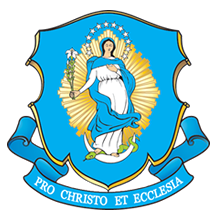
In all your affairs rely on God’s Providence, through which alone your plans can succeed. Meanwhile, on your part, work on in quiet cooperation with God, and then rest satisfied that if you have entrusted your work entirely to God, you will always obtain that measure of success which is best for you, whether it seems so or not in your own judgment.
by Kimberly Bruce
Centuries before President Ronald Reagan, there was another “Great Communicator”: St. Francis de Sales, whose feast day we celebrate on Jan. 24. Known as “the Master and Restorer of Sacred Eloquence,” St. Francis was responsible for bringing tens of thousands back to the Catholic faith during the Protestant Reformation and enriching the Church by his numerous written works. He is the patron saint of writers, and was declared a Doctor of the Church by Bl. Pope Pius IX in 1877.
A horse story
The eldest of six brothers, St. Francis was born in 1567 into an aristocratic family in Thorens in the Duchy of Savoy (present-day France). He studied rhetoric and humanities in Paris under the Jesuits, and obtained a law degree in Padua, Italy, in 1592.
The story is told that, one day while riding, amidst discernment of God’s will for his life, St. Francis three times fell off his horse. With each fall, his sword and scabbard landed in the shape of a cross on the ground. Later, he knelt before a miraculous image of the Blessed Virgin Mary, consecrated himself to her, and vowed a life of chastity.
Saint Francis’ father, however, planned for his son to marry. When Francis informed him of his desire to become a priest, his father refused to concede.
Escape to Geneva
Providing a way out for young Francis, the Bishop of Geneva appointed him provost of the Chapter of Geneva, in patronage to the pope. His father relented, and in 1593, St. Francis was ordained to the priesthood.
One of his first priestly decisions was to go into pro-Reformation Calvinist territory to bring back fallen-away Catholics. He endured treacherous travel in wintry weather, and was met with doors slammed in his face, death threats, and would-be assassins.
He decided to write pamphlets explaining the basic truths of the Catholic faith that he slipped under people’s doors. Little by little, those who had fallen-away returned to the faith, to the tune of an estimated 40,000-60,000 lost souls.
In 1602, St. Francis was consecrated Bishop of Geneva. Greatly admired by King Henry IV of France, he forged an alliance between the king and Pope Clement VIII. Soon thereafter, he met St. Jane Frances de Chantal. Together they founded the Order of the Visitation, a community of women religious, in 1610.
Wise counsel
Beloved for his simplicity in word and speech regarding all things in the spiritual life, St. Francis spoke much about many subjects. In Courage in Chaos: Wisdom from Francis de Sales, edited by K. Hermes, he is quoted talking about anger:
Under no pretext let anger and passion enter your heart … Without a doubt, it is a duty to oppose what is wrong and to steadily and firmly correct those for whom we are responsible, but we must also do so gently and quietly … As soon as you are conscious of an angry act, atone for the fault by some speedy act of meekness toward the person who aroused your anger … There is an old saying that fresh wounds quickly cared for are more swiftly healed.
He also cautioned against the sin of pride:
Although it is but reasonable that we should be displeased and grieved at our own faults, we need to guard against being bitter, angry, or fretful about them … this keeps them in a chronic state of irritation, strengthens the impressions made, and prepares one for a fresh fall on the first occasion. Moreover, all this anger and irritation against one’s self fosters pride, springing as it does from self-love, which is disturbed and upset by its own imperfection.
Here’s what St. Francis had to say about haste:
Accept the duties which are entrusted to you quietly, and try to fulfill them methodically, one after another. If you attempt to do everything at once, or with confusion, you will only burden yourself with your own exertions, and by entangling your mind, you will probably be overwhelmed and accomplish nothing . . . In all your affairs rely on God’s Providence, through which alone your plans can succeed. Meanwhile, on your part, work on in quiet cooperation with God, and then rest satisfied that if you have entrusted your work entirely to God, you will always obtain that measure of success which is best for you, whether it seems so or not in your own judgment.
This beloved future saint died in 1622, and within 40 years was canonized by Pope Alexander VII, a testament to his popularity and sanctity.
Two centuries later, a future saint named John Bosco was so devoted to St. Francis’ simple spirituality and philosophy of kindness that he established the Society of St. Francis de Sales in his honor in 1859 — popularly known today as the Salesians, a teaching order.
Saint Francis de Sales, Bishop and Doctor of the Church, pray for us!
{shopmercy-ad}
















